World War I – The Western Front
This is the student activity 1 of 1 of the World War I: the Western Front learning activity.
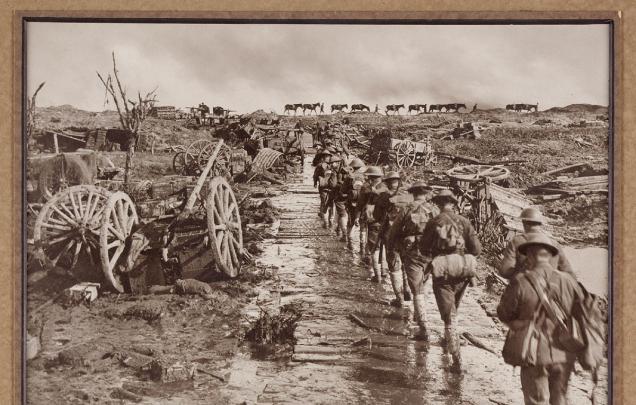
World War I – The Western Front
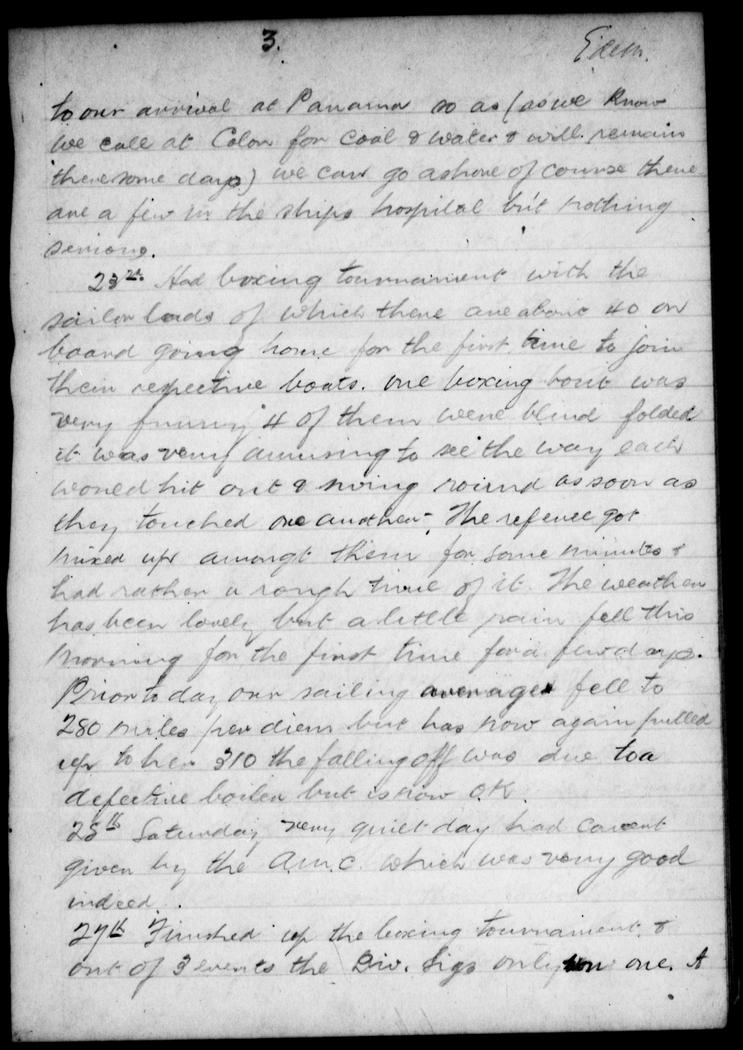
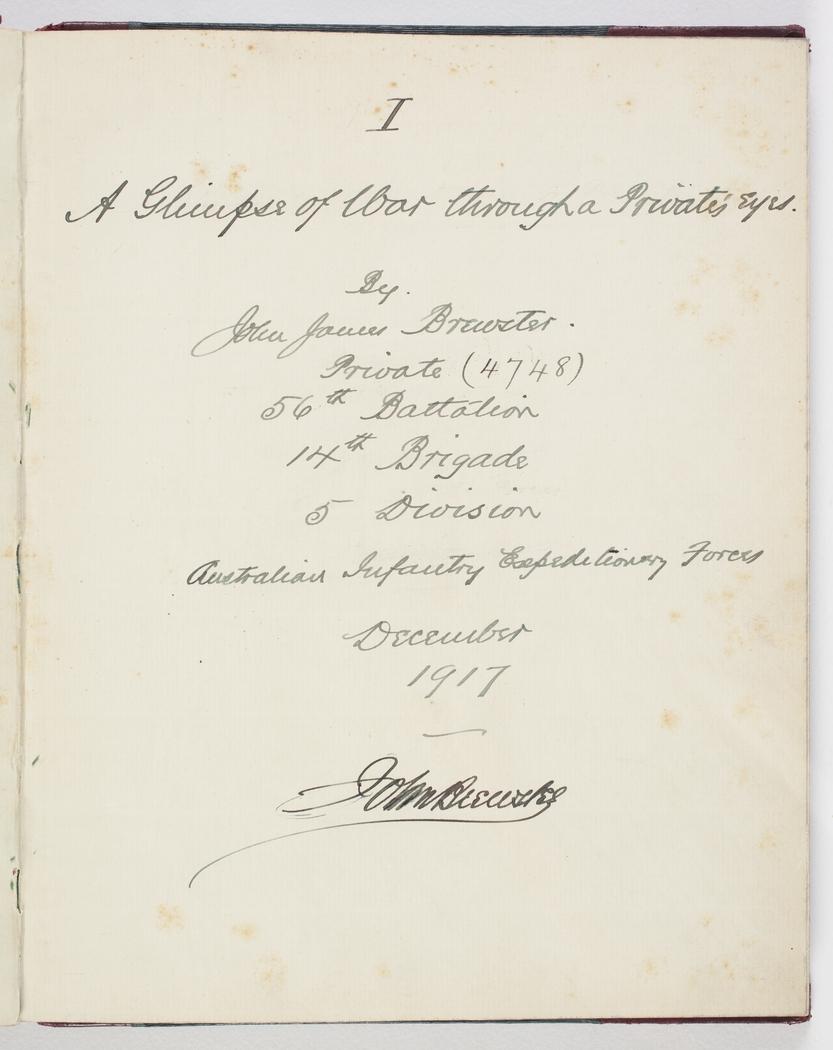

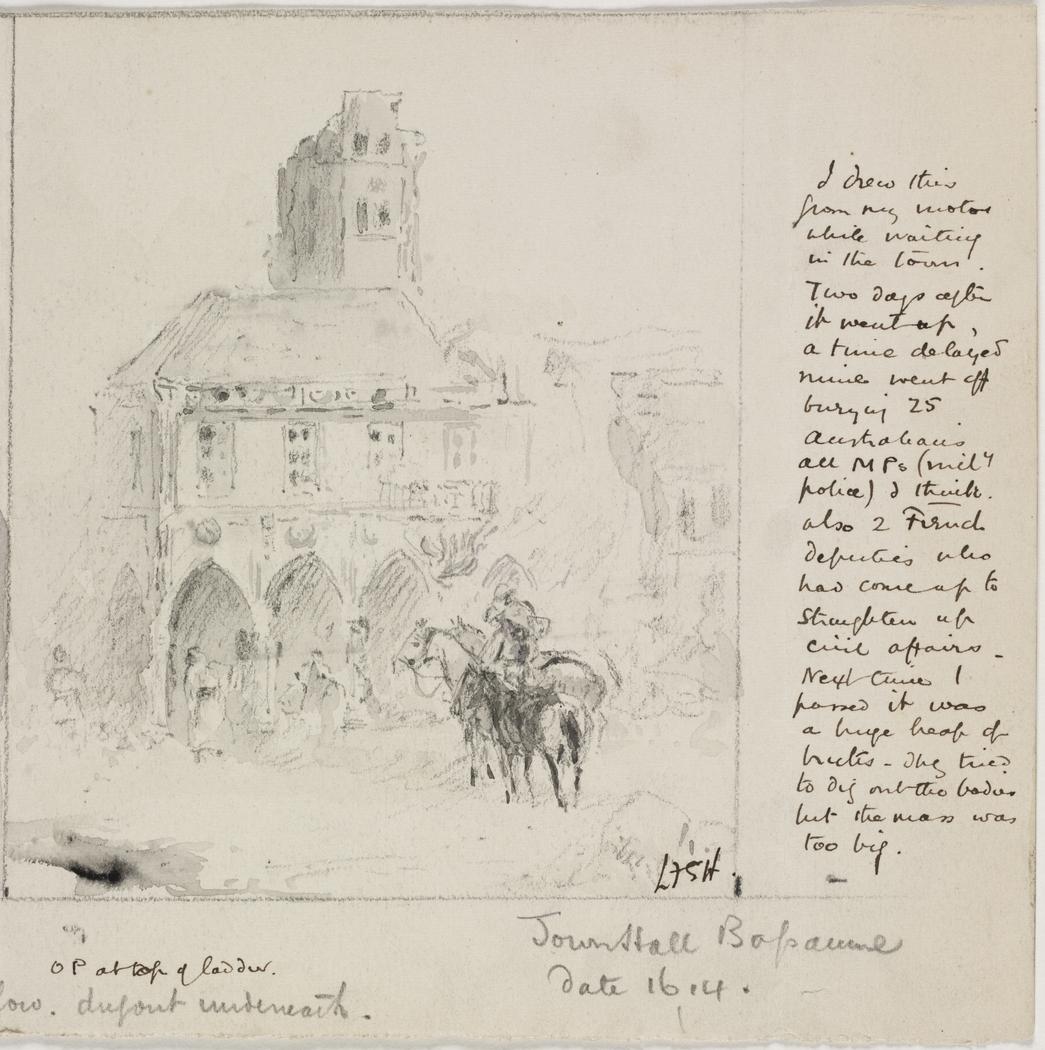
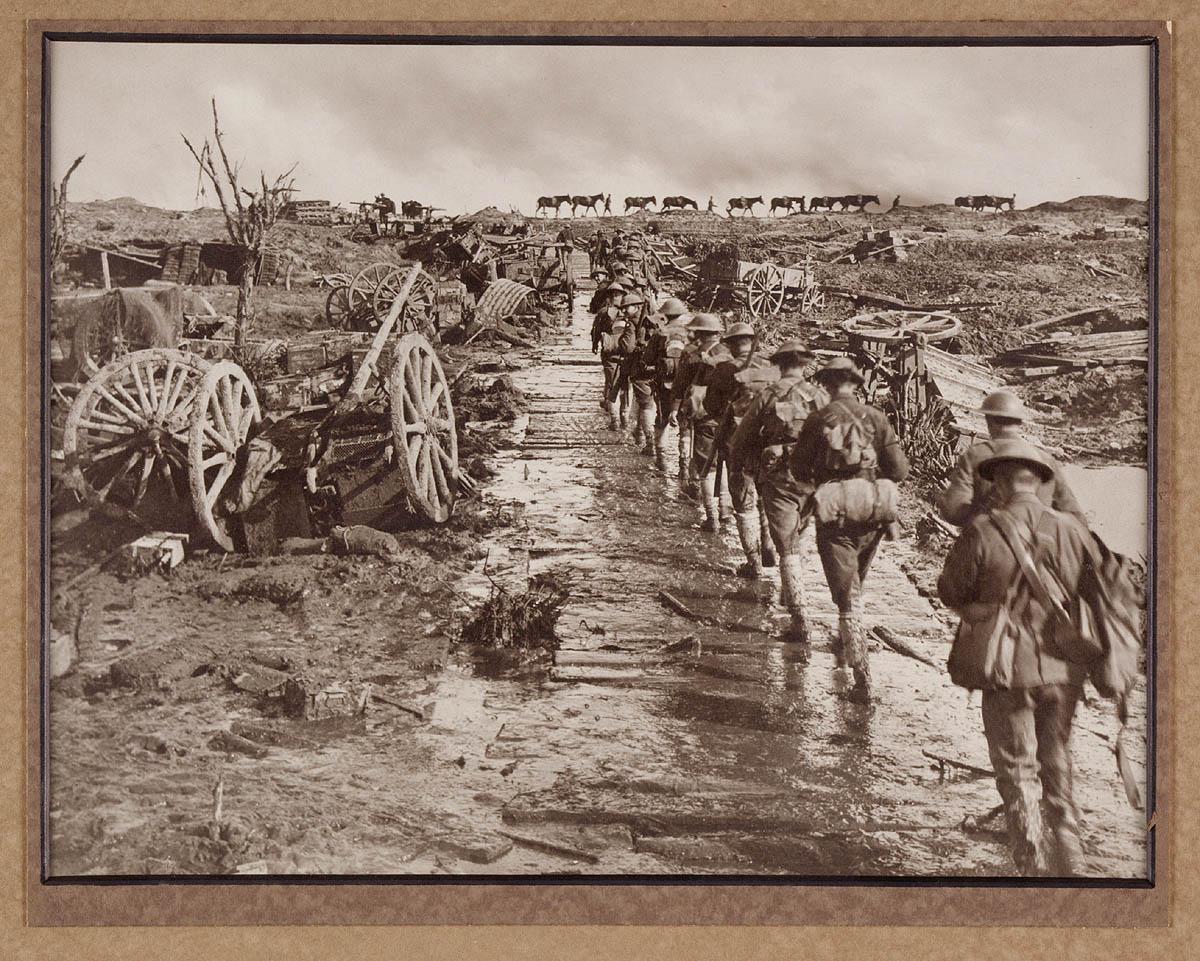
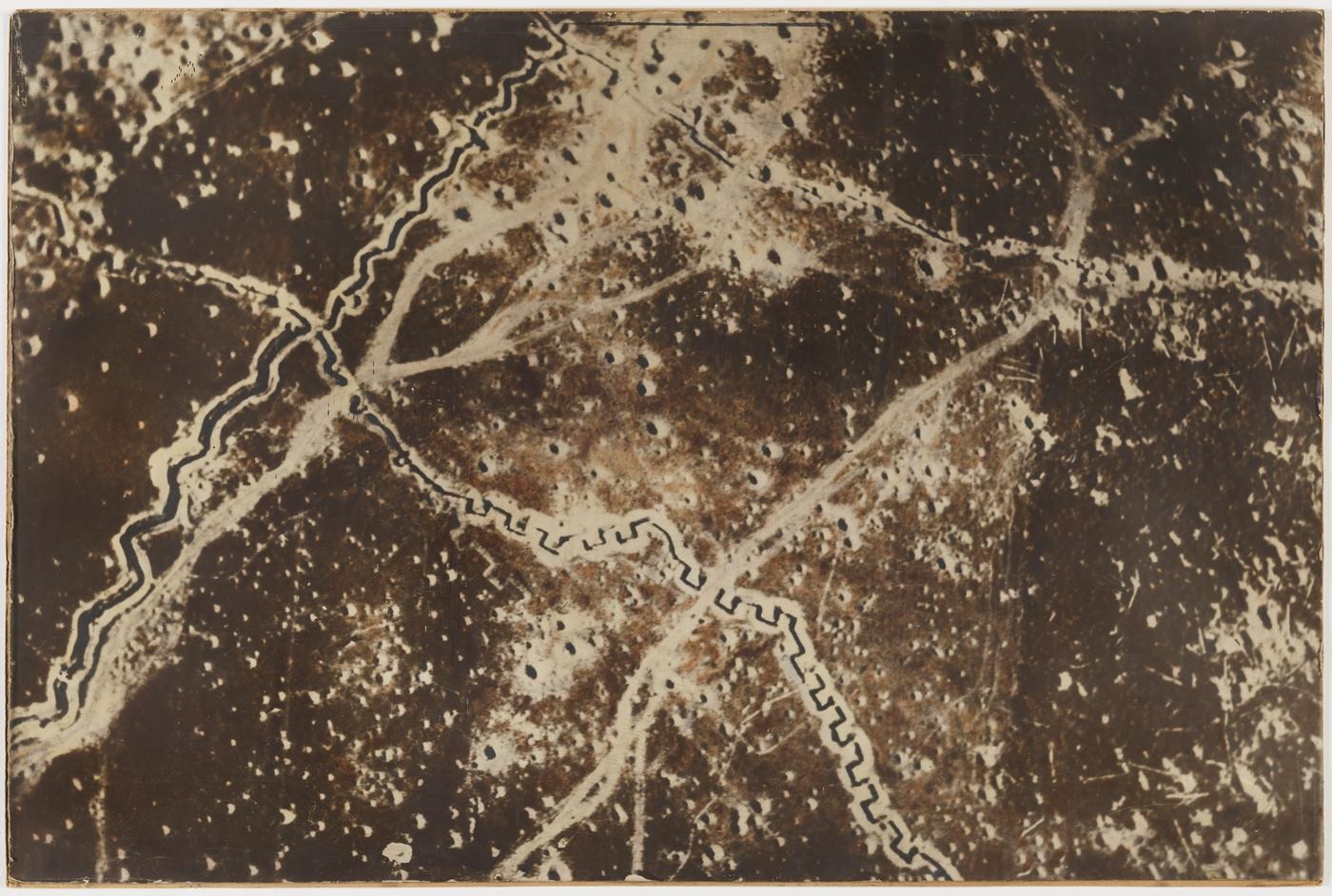
Use the downloadable resource to answer questions relating to the below sources.
Transcript: De Mouncy diary, 1917-1918 / Ernest de Mouncy, MLMSS 1839
At present I am enjoying fairly good health although of course like the majority I went through a bad time in France. You cannot without being there realize the awfulness of it all & I can hardly realize it yet that I am really homeward bound. How on earth anyone gets out of it I cannot understand. It is one continuous roar of guns and big ones at that. At first you take no notice of their bursting overhead & all round but after a time, when you have seen fellows falling all about & you get blown up once or twice then you become to get a bit windy(1). In civilian life the thought of a broken limb would be something awful but it’s very common in the lines to hear the men wish for a loss of an arm or leg if a fellow gets a leg or arm shattered he is looked on by his mates as a very lucky beggar and they congratulate him, and regret it is not themselves who got it.
I do wish it were all over for all the boys’ sake.....
I was evacuated from the firing line on the 1st of June from a very hot shop (2) called Villas Brecneaux(3), I amongst 800 were gassed(4) some of them very badly indeed. I being more fortunate was not so badly burned. Fritz(5) put over gas shells for 17 hours in a sector of ½ mile by a ¼, it was hot(6) I can assure you. Although that was pretty warm we experienced a much hotter day on the 5th August April when he put over terribly heavy high explosive shells for nearly 24 hours. They fell just like hail and yet strange to say although there were a great number of casualties a good number of us escaped without a scratch.
They were falling & bursting all round us dozens to the second & the country round about the day before which showed no signs of shell holes, after the barrage you could not take a step without walking into one. Horses and men lying all around for some distance, it was a fearful sight time....
Whilst at Laverville about the 29th March I got a bit of shell shock(7). He(8) had been shelling as usual blew in the side of a room with a 5.9(9) where 5 of our men were sitting without injuring one of them. I was near a big building when over came a beauty landing just near me. Brought the whole structure down about my ears and burying me amongst the debris. I got such a shock I did not recover for a couple of weeks, and the 5th April stunt (10) did not improve things.
I was in hospital six weeks in France & having been marked unfit for further service was evacuated to England where I arrived on the 1st of August.
(1) Slang term for frightened.
(2) ‘Hot shop’ is slang for an area of fierce fighting.
(3) De Mouncy has spelled this place name incorrectly. We know it as Villers-Bretonneux, where over 1200 Australians were killed.
(4) Poison gas was used on the battlefield by both sides. This was probably mustard gas which causes blistering on contact with the skin and in the lungs if inhaled.
(5) Slang term for the Germans.
(6) ‘Hot’ and ‘warm’ are used as slang terms here, meaning the action was fierce or dangerous.
(7) A psychologically traumatised state of nervous reaction caused by intense bombardment or fighting.
(8) The Germans
(9) A 5.9 inch explosive shell, also called a ‘crump’. Allied soldiers called the end of the war ‘the last crump'.
(10) The bombardment of high explosive shells mentioned before.
From a retrospective account written before 1920 by Private John James Brewster. This section discusses a successful attack by the Australian 56th Battalion (1) in 1917 on a German trench.
As the conditions were made more clear with closer association, even the most thoughtless amongst the men were forced to wonder how they had succeeded in carrying the position. Why! only one of the Machine Guns commanding that gate could have piled the dead almost as high as a hill without letting one single man through! ...
The only conclusion arrived at was that the attack was such a thoroughly complete surprise that all the Huns (2) had received such a bad shock to their "nerves" that they neither could hold either Machine Guns or Rifles steady & their aiming must have been ‘hellishly’ high in the air.
One steady Machine Gunner should have swept that battalion out of existence but even if they had waited till the advancing men had reached the wire the latter could have all been shot like rats in a trap.
(1) A Battalion normally consists of a complement of 900 to 1000 soldiers.
(2) Another slang term for Germans
Transcript: Archibald Barwick diary, 7 November 1916-2 January 1917/Archibald Barwick, MLMSS 1493/Box 1/Item 7
The other day one of our chaps asked his officer if he could ‘fall out’ (1) for a while the officer said yes, about ½ an hour afterwards they went to look for him and found him dead. Frozen to death they reckon, the Doctor reckons he must have been pretty low in health and had not sufficient vitality to fight it off, so he just laid down and died ..., but I’ll bet before the winter is over there will be many a similar case for I know myself once you get to a certain state you don’t give a curse what comes or goes and you feel quite comfortable but you have not the energy to stir.
This evening the Doctor lectured all N.C.O.s(2) on ‘trench feet’ and how to prevent it among your men, ‘trench feet’ is a very serious thing, your feet swell up to an enormous size and you can't walk, this is caused by several things, such as boots too tight, poor circulation of the blood caused by over fatigue, no hot meals, wet feet and on top of all this the freezing cold, it also affects your hands in the same way, how to combat this is every officers and N.C.O.'s duty and the platoon Sergeant has to see that every man in his charge changes his socks as often as possible, takes off his boots at every opportunity, and rub their feet briskly, we also have to see that every man uses the ‘whale oil’ which is supplied to us and rubs it well into their feet, this whale oil is a very fine thing, though it is inclined to make your feet soft for marching, by this you can see the Sergeants have no easy time while in the trenches for this is only one of the things we have to look to.....
Spent the greater part of my time today helping the Tommies(3) out with their bogged teams (4), they are absolutely no class for the Australians as far as horses go, as soon as ever a Tommy gets stuck the first thing he does is to lay into his horses for all he is worth and in 9 cases out of 10 it is over the horses head that he brings his whip. I don’t like skiting(5) but I think I opened a few of their eyes today as far as handling horses and bogged teams go.
I saw a fine piece of horsemanship this afternoon on the part of a few Australians, they had a couple of G.S. wagons (6) heavily laden with corn and chaff for some of the horses just here and they had to come through some of the awfullest ground imaginable, up to the mules’ shoulders and the body of the wagon was dragging on the mud, they hitched 22 mules up and dragged the wagons out one at a time, even then they could only move a few feet at a time if they had been Tommies I’ll guarantee they would have been there till the end of the war.
(1) Have a rest
(2) Non-commissioned officers
(3) British soldiers
(4) Teams of horses/mules used to haul transport wagons.
(5) Boasting
(6) A General Service transport wagon
48. Memorial to fallen soldiers of 1870-71 outside Bapaume
The text says, ‘I drew this from my motor [car] while waiting in the town. Two days after it went up [in an explosion], a time delayed mine [left by the Germans] went off burying 25 Australians, all MPs (military police) I think also 2 French deputies who had come up to straighten up civil affairs. Next time I passed it was a huge heap of bricks – they tried to dig out the bodies but the mess was too big.’